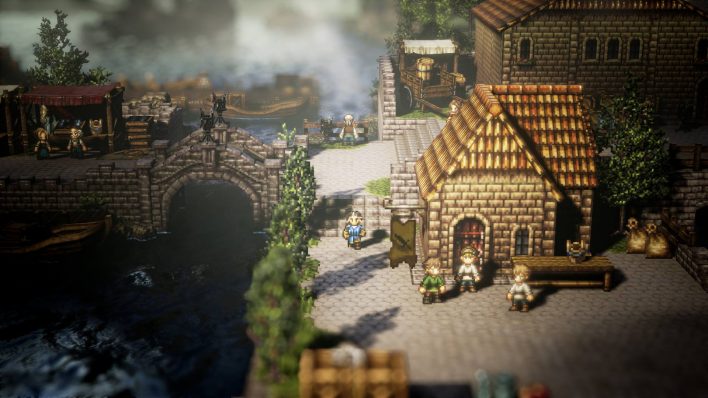
I’m quite enjoying Octopath Traveler. I’m not a big fan of other Square games and generally don’t enjoy the JRPG format, but for some reason, this game has stuck with me for hours and hours. I’ve just hit the first boss I can’t defeat (to avoid any embarrassment, I’m not saying which one).
I’ve beat my head against this boss for quite a while and I’m about ready to just quit. As a game designer, it’s an interesting experience. Players clearly have this problem with the games I design and it makes me wonder if it’s a good experience.
I’ve resited hint systems in my adventure games for almost ever and had to be beaten down by the rest of the TWP team to add one, but in retrospect, it was the right decision and should have been in there from day one.
The point of a game is to enjoy it and if a little hint, nudge or one-shot can often help someone do that. The danger for a designer is that the hint system becomes a crutch and it becomes how people play the game and they have a shitty experience because they spent most of there time looking up (or calling for) hints.
I severely run the risk of not picking up Octopath again. I’d love a way to circumvent bosses, even if it took me a little grinding to do so. Maybe there is and I just haven’t found it yet.
Hint systems are good, but they do need a little friction.